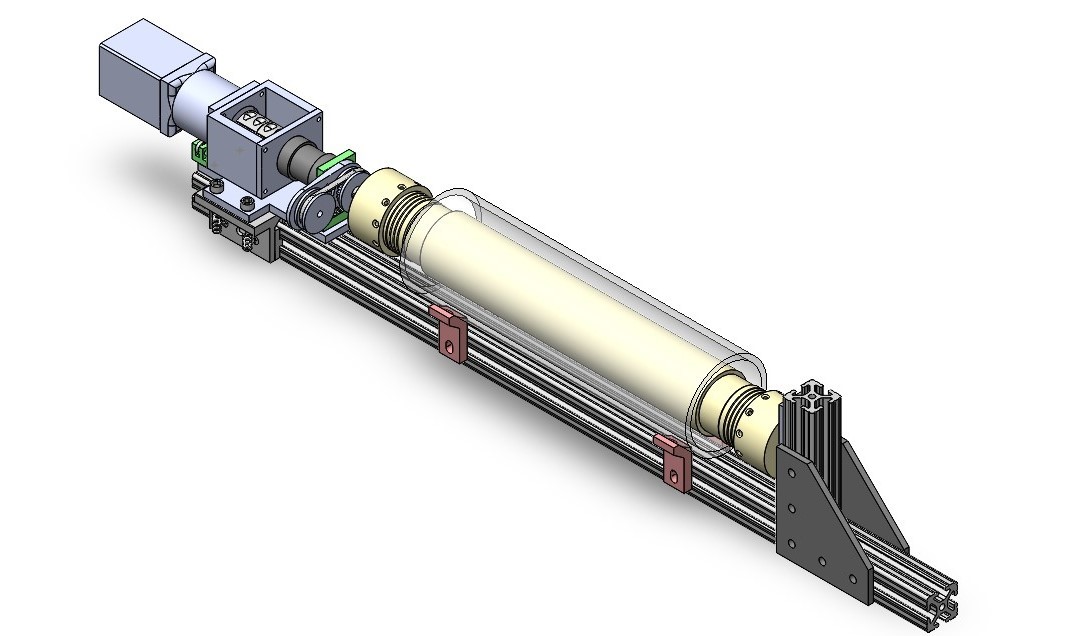
Torque Testing Rig
Table-top testing rig able to gradually twist a pneumatic artificial muscle to measure torque and twist that the PAM was able to react.
Learn moreResearch to develop soft robots for planetary exploration
The CORE Lab is the University of Maryland's composites and smart structures laboratory. We investigate the structural behavior and stresses of novel materials and mechanisms, ranging from flexible lattice structures and foams for impact resistance to pneumatic artificial muscles.
In particular, I work with Frank Cianciarulo, an Aerospace Engineering graduate student, to characterize the behavior of pneumatic artificial muscles (PAMs). Once we pressurize these PAMs, they are able to exert axial and radial loads, and we measure the different load capabilities and other metrics to understand these PAMs capabilities. These characterisitics are important for not only widening the understanding of PAMs in academia but also to contribute to design decisions for actuators on soft robots. Eventually these types of muscles will be able to burrow into the ground and explore under the surfaces of Earth, Mars, and more.
My project focuses around the PAM's torsional capabilities, which means how the PAM reacts the torsional loads when one end is fixed. Its stiffness against torsion is related to how much it is pressurized, and at multiple pressures, I was able to extrapolate the maximum torque the muscle could react with a torisonal testing rig. Designing a rig that can output a controlled and consistent amount of torque was the challenge, and it also needed to measure various loads and displacements for research purposes.

Table-top testing rig able to gradually twist a pneumatic artificial muscle to measure torque and twist that the PAM was able to react.
Learn more